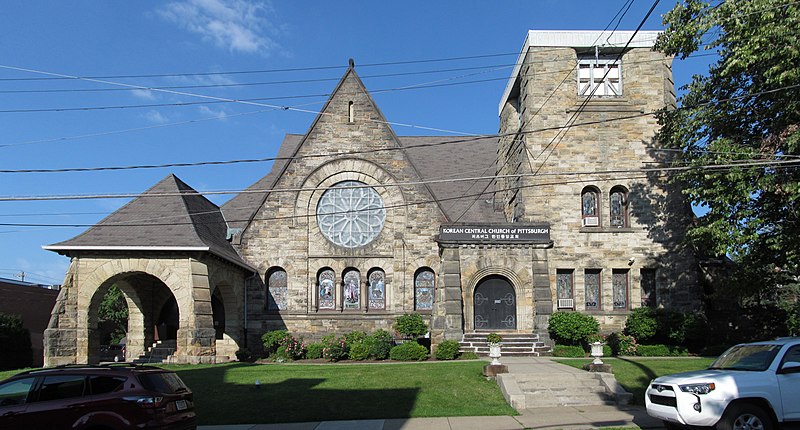
From the blocked-up Gothic windows and general shape, we can infer that this was a small church. But at some point not very recently it was converted to four tiny alley houses, made only slightly less tiny by the addition of what are probably kitchens on the back. (Update: For the history of the church, see “The Mystery of the Converted Church on the South Side.”)




















